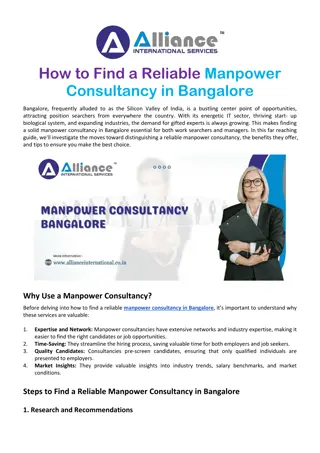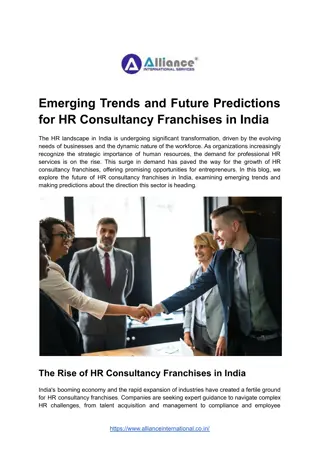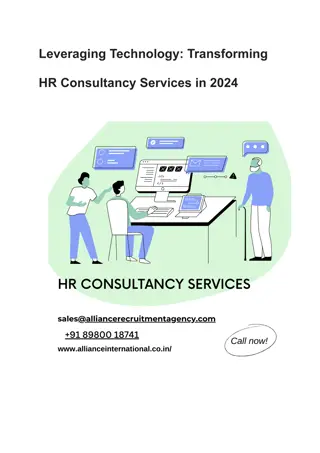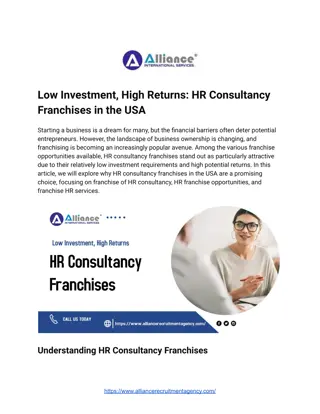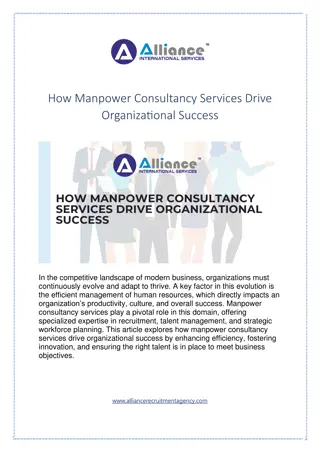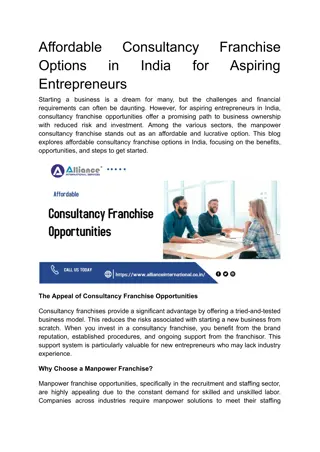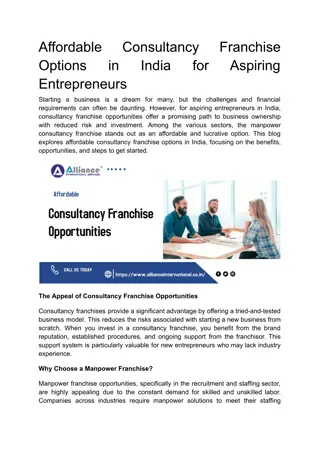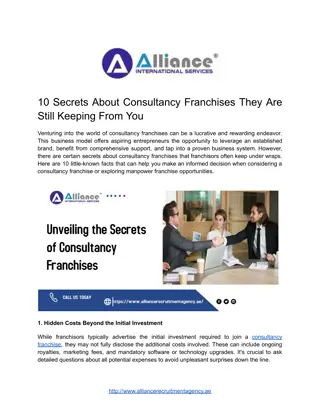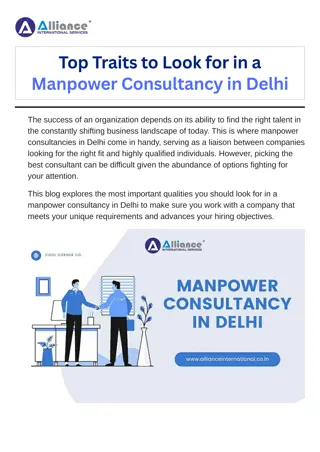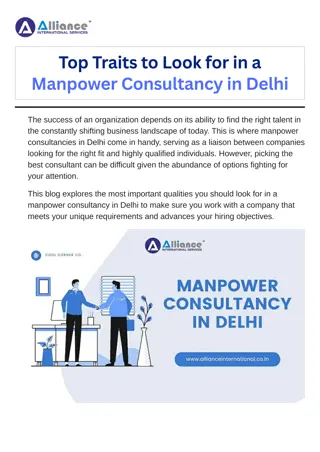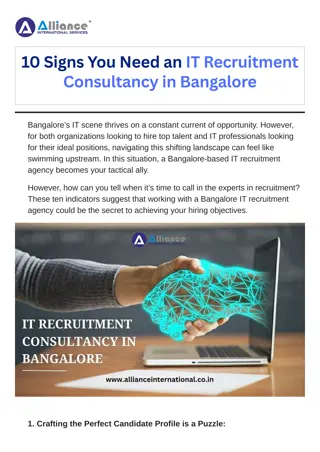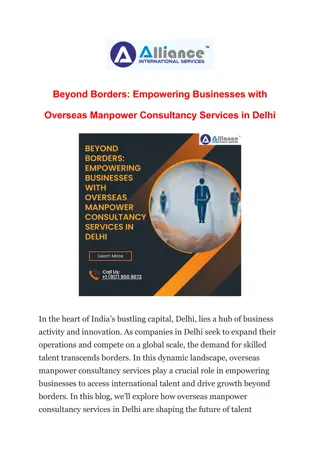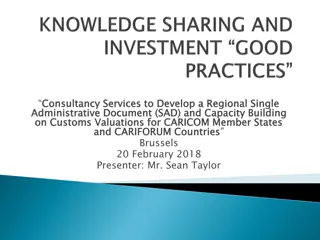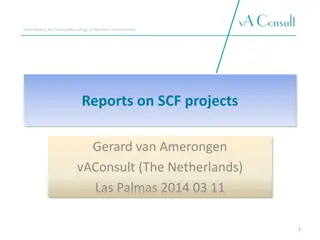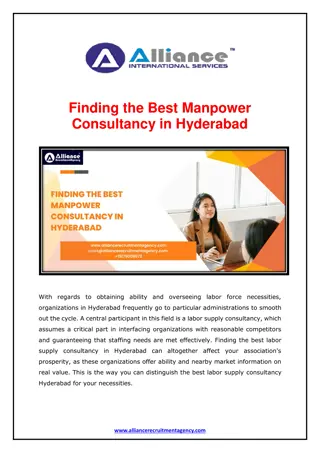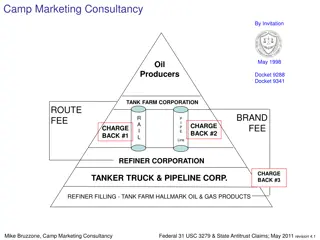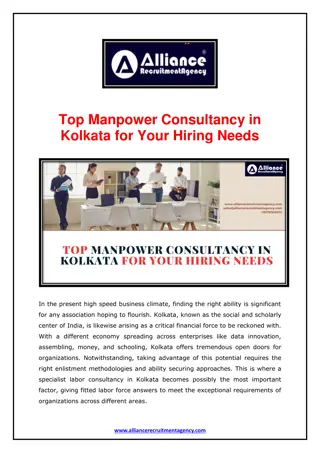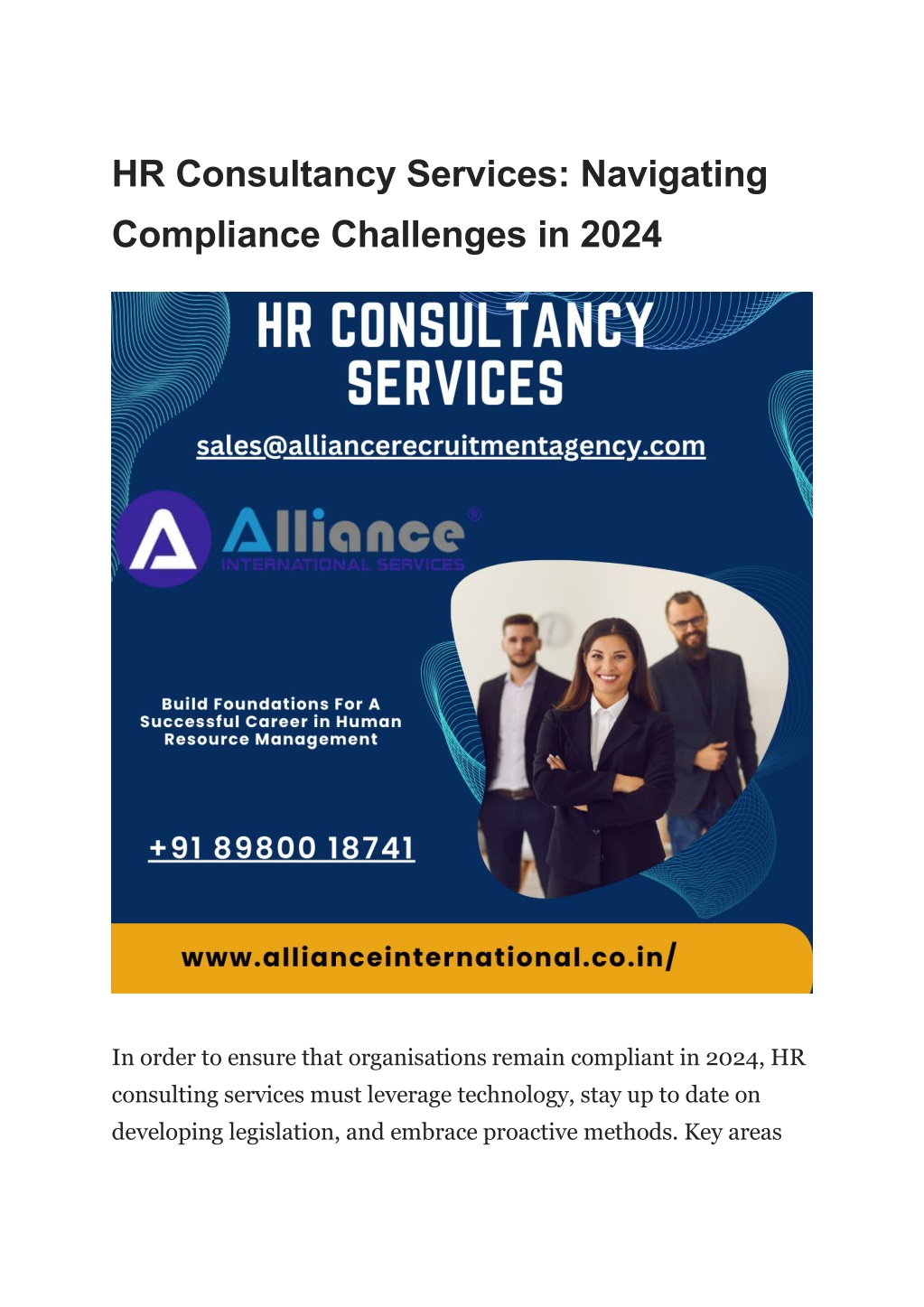
HR Consultancy Services Navigating Compliance Challenges in 2024
In order to ensure that organisations remain compliant in 2024, HR consulting services must leverage technology, stay up to date on developing legislation, and embrace proactive methods. Key areas and tactics that HR consulting services ought to concentrate on are as follows:nn
Download Presentation

Please find below an Image/Link to download the presentation.
The content on the website is provided AS IS for your information and personal use only. It may not be sold, licensed, or shared on other websites without obtaining consent from the author. Download presentation by click this link. If you encounter any issues during the download, it is possible that the publisher has removed the file from their server.
E N D
Presentation Transcript
HR Consultancy Services: Navigating Compliance Challenges in 2024 In order to ensure that organisations remain compliant in 2024, HR consulting services must leverage technology, stay up to date on developing legislation, and embrace proactive methods. Key areas
and tactics that HR consulting services ought to concentrate on are as follows: 1. Keeping abreast with regulatory changes Constant Monitoring: To make sure that the most recent regulations are being followed, keep an eye out for revisions from regulatory agencies, labour laws, and industry standards. Alerts for Compliance: Put in place mechanisms to get alerts in real time about changes to regulations that impact HR procedures. 2. Making Use of HR Software and Technology Compliance Management Software: Track modifications, handle compliance obligations, and automate reporting with the use of specialised software. Tools for Data Security and Privacy: Make sure that cutting-edge cybersecurity measures are used and that laws governing data protection, such as the CCPA and GDPR, are followed. 3. Education and Training Regular Compliance Training: Provide HR professionals and staff with regular training on compliance subjects, such as data protection, workplace safety, and anti-discrimination legislation. Certification Programmes: To advance their knowledge, HR professionals should be encouraged to obtain certifications in compliance-related fields. 4. Creating Extensive Guidelines and Practices Regularly examine and update HR policies and processes to ensure
compliance with current regulations and industry best practices. Employee Handbooks: Create and keep up-to-date comprehensive employee handbooks that specify expectations, rules, and processes related to compliance. 5. Classification of Employees and Compliance with Wages Precise Classification: In order to abide by wage and hour regulations, be sure that employees (full-time, part-time, and independent contractors) are properly classified. pay and Hour Audits: Perform routine audits to make sure that the criteria for record-keeping, overtime, and minimum pay are being met. 6. Compliance with Diversity, Equity, and Inclusion (DEI) Equality in Hiring Procedures: Create plans to guarantee that hiring and recruitment procedures are impartial and support diversity. EEO Compliance: Make sure that the Equal Employment Opportunity (EEO) laws are followed, and actively encourage a diverse and welcoming work environment. 7. Safety and Health Rules Workplace Safety Programmes: To adhere to Occupational Safety and Health Administration (OSHA) regulations, implement and update workplace safety programmes on a regular basis. Ensuring health and safety compliance for remote and hybrid work environments is crucial. This includes conducting ergonomic assessments and implementing safe home office configurations.
8. Benefits for Employees and Leave Management Compliance Make sure that all applicable laws, such as the FMLA and the Affordable Care Act, are followed when it comes to employee benefits. Leave Management: To monitor and adhere to different leave entitlements and rules, put in place reliable leave management systems. 9. Managing Conflicts and Employee Relations Grievance Procedures: To avoid litigation and guarantee equitable treatment, clearly define the processes to be followed when addressing employee grievances and disagreements. Legal Consultation: Reduce legal risks and negotiate complicated employee relations difficulties with the help of legal specialists. 10. Risk and Auditing Compliance Audits: To find and fix any possible compliance holes, conduct routine internal audits. Conduct thorough risk assessments in order to manage compliance issues proactively and put remedial measures in place. 11. Worldwide Adherence International Regulations: Make ensuring that all operational regions of multinational corporations comply with all applicable labour laws and regulations. Cross-Border Policies: Create uniform guidelines that take into
account local legal requirements while preserving international coherence. 12. Corporate Governance and Ethics Code of Conduct: Create and implement a code of conduct with an emphasis on moral conduct and adherence to the law. Schemes for Whistleblowers: Establish effective whistleblower programmes to promote the reporting of noncompliance with regulations without worrying about reprisals. Tailored Compliance Solutions: Provide customised compliance solutions that speak to the particular requirements and difficulties that every organisation faces. Partnerships with Law Firms: Form alliances with law firms to provide all-encompassing compliance assistance, which may include legal representation if required. Conclusion HR consulting services may successfully assist organisations in navigating compliance problems in 2024 by concentrating on these areas and implementing proactive strategies, ensuring they satisfy regulatory standards and minimise risks. Alliance International is one such brand name that excels in providing HR consultants services in India. Contact us today to learn more about how we can support your business goals.




